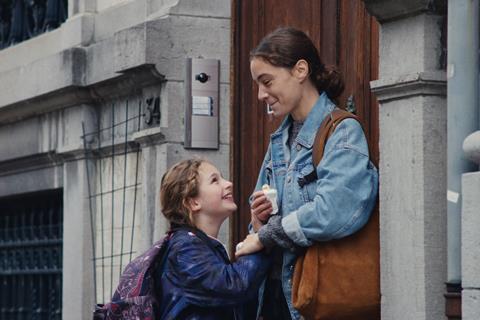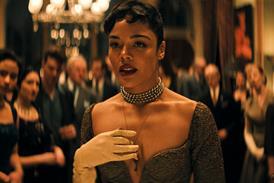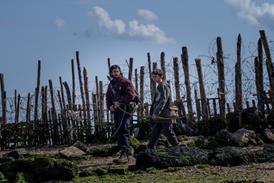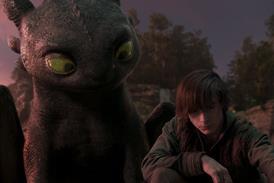Alexe Poukine’s tonally-ambitious feature-length debut is balanced by a sensitive performance from Manon Clavel

Dir: Alexe Poukine. Belgium, France. 2025 110mins
Necessity is the mother of reinvention in Kika. The first feature-length narrative from French-born, Belgium-based filmmaker Alexe Puokine follows a young social worker who takes desperate measures to remain solvent after her life is upended by tragedy. A finely calibrated performance from Manon Clavel retains audience sympathy as the film navigates some tricky gear changes from romantic charmer to something darker and more disturbing.
A finely calibrated performance from Manon Clavel retains audience sympathy
Poukine’s previous shortform work, including That Which Doesn’t Kill (2019) and Palma (2020), has focused on understanding suffering and trauma. In Kika, which debuts in Cannes Critics Week, she initially beguiles us with a meet-cute romantic set up that is straight out of the Billy Wilder playbook. Social worker Kika (Clavel) has a tireless commitment to improving the lives of others. One evening in Brussels, she takes her daughter’s bike to a repair shop and winds up locked in with employee David (Makita Samba). Pierre Desprats’ jazzy soundtrack, utilising a plaintive tenor saxophone, captures the yearning in their first encounter.
A love at first sight attraction sparks a whirlwind romance that prompts Kika to leave husband Paul (Thomas Coumans). Clavel and Samba make a very likeable couple and Poukine allows them the tender moments that encourage us to hope that love will triumph. Soon, however, a tragedy leaves a pregnant Kika and daughter Louison (Suzanne Elbaz) struggling to pay their bills.
It also deflates the film for a period, until Poukine reveals its new direction. Now in dire straits, Kika appears as vulnerable as the people she once sought to help. An earlier conversation with one claimant has planted a seed that grows in parallel with Kika’s desperation. The woman revealed that she was making easy money by selling her soiled underwear for €100. The idea becomes a lifeline for Kika, as she puts all her grief to one side and takes a tentative step into the lucrative world of sex work.
Clavel’s Kika is a deer-in-the-headlights innocent in this new world. Her awkward manner and inexperience rarely seem to disappoint easily-pleased customers. She never seems to be in any real danger and remains curious rather than judgemental. Returning home to her parents and daughter allows her to build a double life in a scenario with echoes of Belle De Jour (1967).
Poukine steeps the film in social realism, making us aware that Kika is surrounded by hardship in a country where there is a 10 year wait for social housing. The filmmaker also embraces her documentary roots in an approach that feels like a beginners guide to BDSM. There is a good deal of mild humour as Kika learns about the vast array of individual desires and the limits of what she is prepared to provide. She also finds a mentor in experienced dominatrix Rasha (Anael Snoek) who invites her along to an older client who wants to be treated as a baby – including sitting in a high chair and having his diaper changed.
Kika always seems to keep her emotions in check, never really feeling anything. A suppressed chuckle or startled look are the extent of her reactions to the pain and humiliation she is now asked to administer. The film, too, carries a sense of discretion. There are things we never see or know and some characters are sketchily conceived – especially Kika’s eternally understanding ex-husband who seems to drift on the sidelines. Poukine has a fondness for fading to a stark, lingering black. Eventually, the dam bursts and Kika takes one step further towards self-realisation in an expertly-orchestrated but brutal sequence.
Production companies: Wrong Men, Kidam
International sales: Totem Films. hello@totem-films.com
Producers: Benoit Roland, Alexandre Perrier, Francois-Pierre Clavel
Screenplay: Alexe Poukine, Thomas Van Zuylen
Cinematography: Colin Leveque
Production design: Julia Irribarria
Editing: Agnes Bruckert
Music: Pierre Desprats
Main cast: Manon Clavel, Ethelle Gonzalez Lardued, Makita Samba, Suzanne Elbaz, Anael Snoek
























